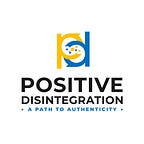In episode 68, Chris and Emma debriefed about Chris’s session from NAGC 2023 titled “Overexcitabilities and Dąbrowski’s Theory: Correcting the Course in Gifted Education.” We covered the five common myths or misunderstandings about the theory of positive disintegration that were addressed in the presentation.
We’ve been sitting on this episode because we didn’t have time to get it out right after last year's conference. Michael’s episode was the priority following NAGC 2023 since his 90th birthday was approaching. We were also concerned that we had shared so many posts about NAGC in the lead-up to the conference that people might be burned out on the topic—but now, we are ready to share!
Highlights
00:02:13 Debriefing about the conference
00:03:50 Previous sessions from Chris at NAGC
00:07:22 Positive impact of the 2022 OE panel session
00:10:02 Myth 1: There is little or no empirical evidence for TPD
00:14:54 Myth 2: TPD is a theory of giftedness
00:24:27 Myth 3: Overexcitability can only be understood within the context of positive disintegration
00:28:43 We do still need the theory as a non-pathologizing framework
00:35:27 Myth 4: Overexcitability and openness to experience are the same thing, and the five-factor model can replace TPD
00:39:45 Myth 5: Overexcitability can be differentiated from ADHD and autism
00:44:50 There's no clear line of demarcation for types of neurodivergence and OE.
00:48:08 Best practices for working with overexcitability
00:52:58 Main takeaways from the session
00:56:49 We care a lot
We hope you’ll enjoy this episode! We’re releasing it ahead of NAGC 2024 in Seattle. Chris submitted no proposals this year and looks forward to attending NAGC without presenting for once. They feel it’s worth repeating this material from last year instead.
Links from this episode
Click here for the download Chris shared at NAGC with slides and relevant papers.
View the post NAGC 2023: Overexcitabilities and Dąbrowski’s Theory from November 2023.
The song “We Care a Lot” by Faith No More (1985), for those who are unfamiliar. It was mentioned during this exchange at the end of the episode.
Connect with us
Positive Disintegration on Substack
Visit the Dabrowski Center website
The Positive Disintegration YouTube Channel
Adults with Overexcitabilities group on Facebook
The Tragic Gift blog by Emma
Email us at positivedisintegration.pod@gmail.com
Please consider supporting the podcast to help fund this work through the Dabrowski Center, a 501(c)(3) nonprofit organization.
Find Positive Disintegration Merch
If you enjoyed this episode on Apple or Spotify, please remember to click on the stars and leave a rating or write a review. Thank you!














